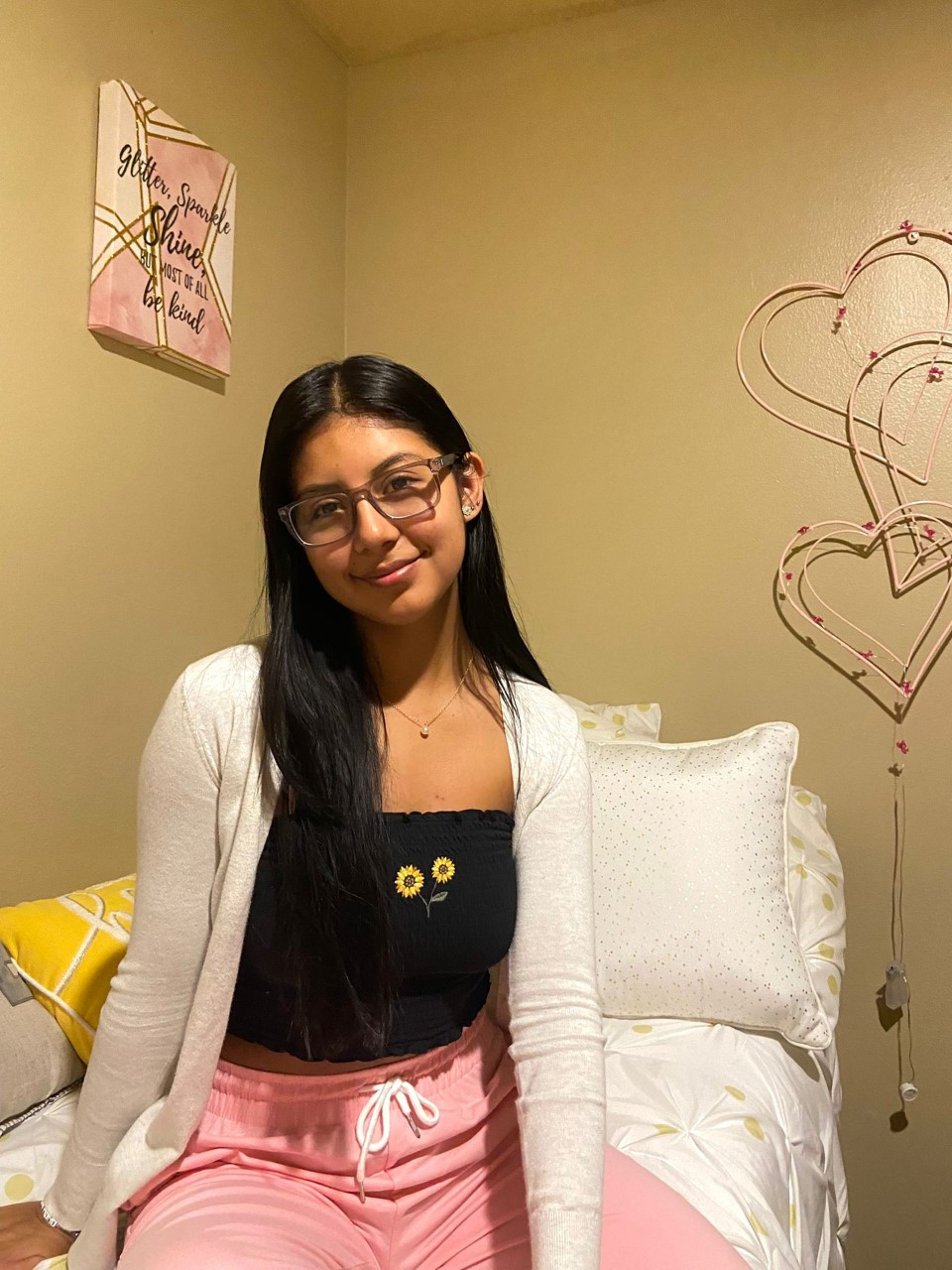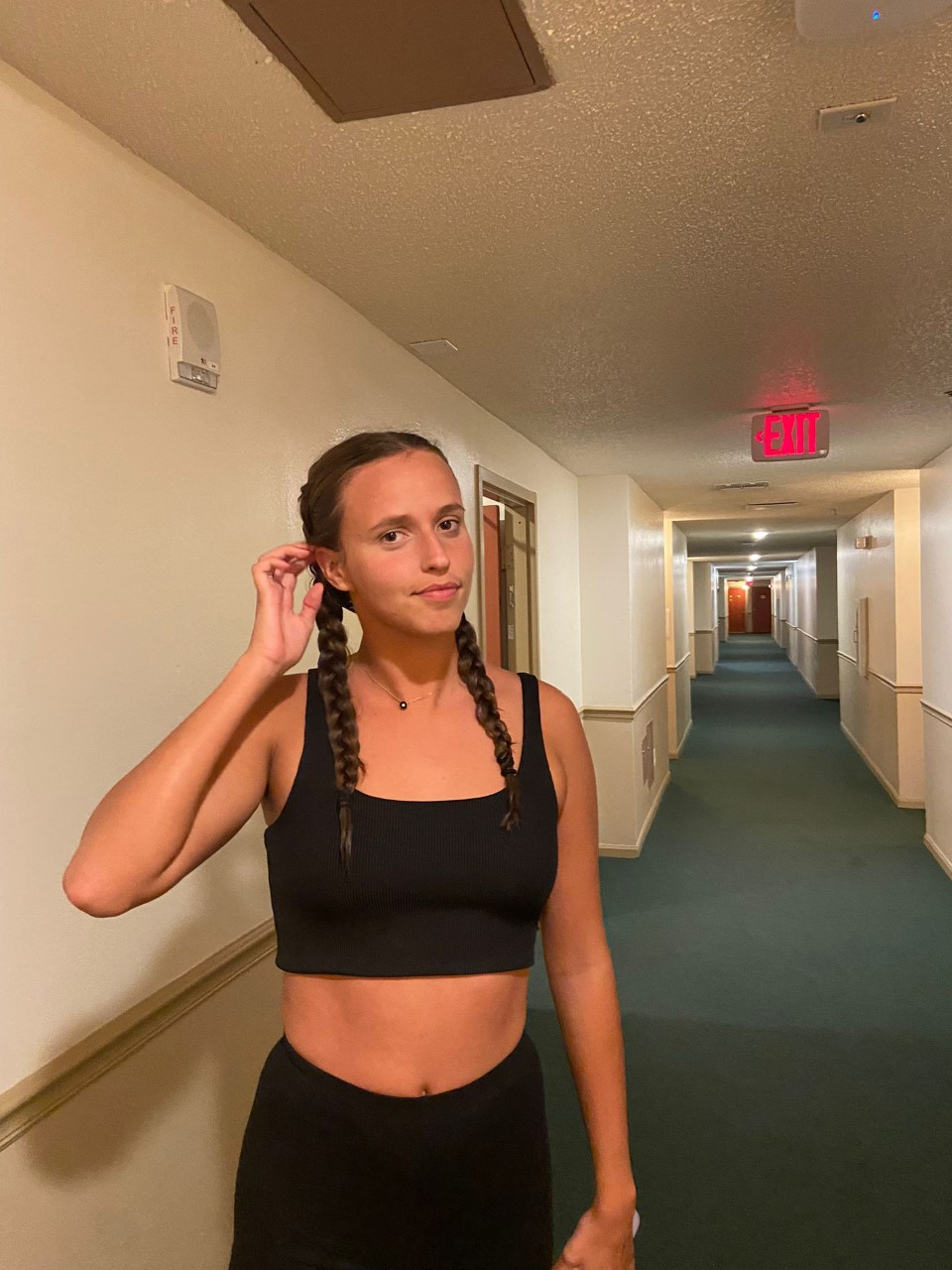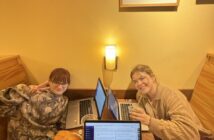By Mariana Navarrete, Arts & Culture Editor
What it means to be a woman is very subjective, but in part, it is a whole spectrum of gender roles based on generation, culture, class, and privilege. Women experience womanhood, or their identity, in personal, different ways besides gender roles, too.
Being a woman is not tied to biology the way that we might have been taught as little kids years ago. We are always thinking about it in different ways. It is something that is not a stable identity, it is something fluid that shifts and is personal. There is more than one expression of what it means to be a woman.
Dr. Allyson Marino, an associate professor of the English department, shared that being a woman means having a choice.
“Growing up it was all very binary, there are girls and there are boys,” Marino said. “As you became older and you become more educated and aware of the world, you realize there are spectrums of what it means to be male or female and it changes and it’s expressed differently.”
Gender roles are tied to culture and historical era and are made even more subjective within a particular culture and time period.

Everyone who identifies as a woman in this place and this time has experienced different gender roles of being a woman. Economic background and racial identity define gender roles in the course of each human’s existence.
“If you look at medieval Europe you might have had a set of gender roles for upper class women: very rigid and hierarchical. But if you were a peasant, your life was tied to the land and the seasons and agriculture. There was not that much of a separation of: women do this and women do that,” Marino explained.
Being a woman could be interpreted as being a character, a performance you have to wake up every morning to act on, like Judith Butler would write.
“So, when you start thinking about gender as performance, it makes it more pulled apart from biological determination and gives us more possibility; it gives us more sense of choice,” Marino said.
Gender is a social construct, but there are more implications to label gender performance as the basis of womanhood. At the end of the day, that actor cannot take all the costumes off and get rid of the fact there are no consequences that follow through their lives.
Marino added, “it’s much harder to walk away from how we are disciplined and perceived in our surroundings into being a woman.”
In the 1960s, the Civil Rights and Women’s Rights movements were parallelly happening in the United States. Mainstream, mostly white upper-middle-class college-educated, became the catch-up feminism that yearned to stop being housewives, together with the right to vote. They wanted
to change the definition of women beyond domestic work, and to have power in the workplace and the political sphere.
Barbara Christianson in her book, “White Women, Listen!,” explains that for many black women of the time, the domestic sphere was not a sign of oppression, it was a place of freedom, a place of safety and identity; the place of oppression was the workplace.
“Many of these black women were working in the houses for white women and it let white women be empowered. White feminism grew on the backs of black women.” Dr. Marino said.
In the spectrum of culture, class, and privilege, being a woman is personal, and the definition of being a woman varies, however, there are some common denominators that intersect.

Pamela Decius, the associate chair of language studies and the arts, explains that for her, being a woman means power.
“I think water and purple are two things I attribute to me and my womanhood,” Decius said.
Decius has always loved purple since she was a child and genuinely believes there is something about purple, some magic, that transmits power and is the definition of women.
“P is the initial of purple like it is of ‘power’,” Decius said.
Decius emphasized how nomadic people knew women’s power and their longstanding connectedness to nature, but that, in 2022, there are still some unwritten rules not broken yet which dismiss the power of women in the domestic, political, social, and economic spheres.
“Women are limitless, and we can do whatever we want. There is not one woman that I can think of that I think is weak; they all have their own strengths, it all comes with the innate need to nurture and to be, and produce and to do things,” Decius added.
Women find ways to be all the things and inhabit many spheres in our lives trying to nurture everybody, without even having a child. A somehow common nurturing feeling could be something that makes us a woman, not because we want to give birth and have children, but how we nurture the communities that surround us.
“Sometimes, I wonder if that is a lot, to try to be all the things, and not get sufficient credit for it,” Decius said. “We need to be seen, we need to be heard, we need to be valued, for the queens that we are for whatever sphere that we decide to inhabit or the many spheres we want to inhabit.”
Any individual who identifies as a female– and anyone in general– is a human being and needs to be valued.
Decius highlighted, “Being a woman is a spectrum and wherever you land on that and whoever you want to be in that spectrum, you need to be empowered to do that.”
Dr. Janice Price, associate professor of sociology and chair of the department of social sciences believes that being a woman means strength, similar to Decius.
“For me personally, being a woman means that I am strong and weak, career and family-oriented,” Prince said. “My gender does not define me. However, I recognize that being a woman in this place, at this time ‘allows’ me to embrace my humanity and ability to empathize.”
Prince stated that class and privilege dovetail in important ways for men and women. To consider being a woman without any attention to either of those is to ignore important aspects of our social context that shape the expressions of “womanness.”

“A woman of the highest social class, with the most privileges, has the most options open,” Prince explained. “Options that would allow that kind of woman very different opportunities that differ from those of a woman from a different background.
Overall, in very subjective terms, choice, power, nurture, and strength are common denominators of what makes a woman, a woman. Let’s not forget it is a personal meaning, and it can always vary, since the womanhood spectrum in 2022 is very much stretched out compared to decades ago, which allows identified females to be valued as the women they want to be.





